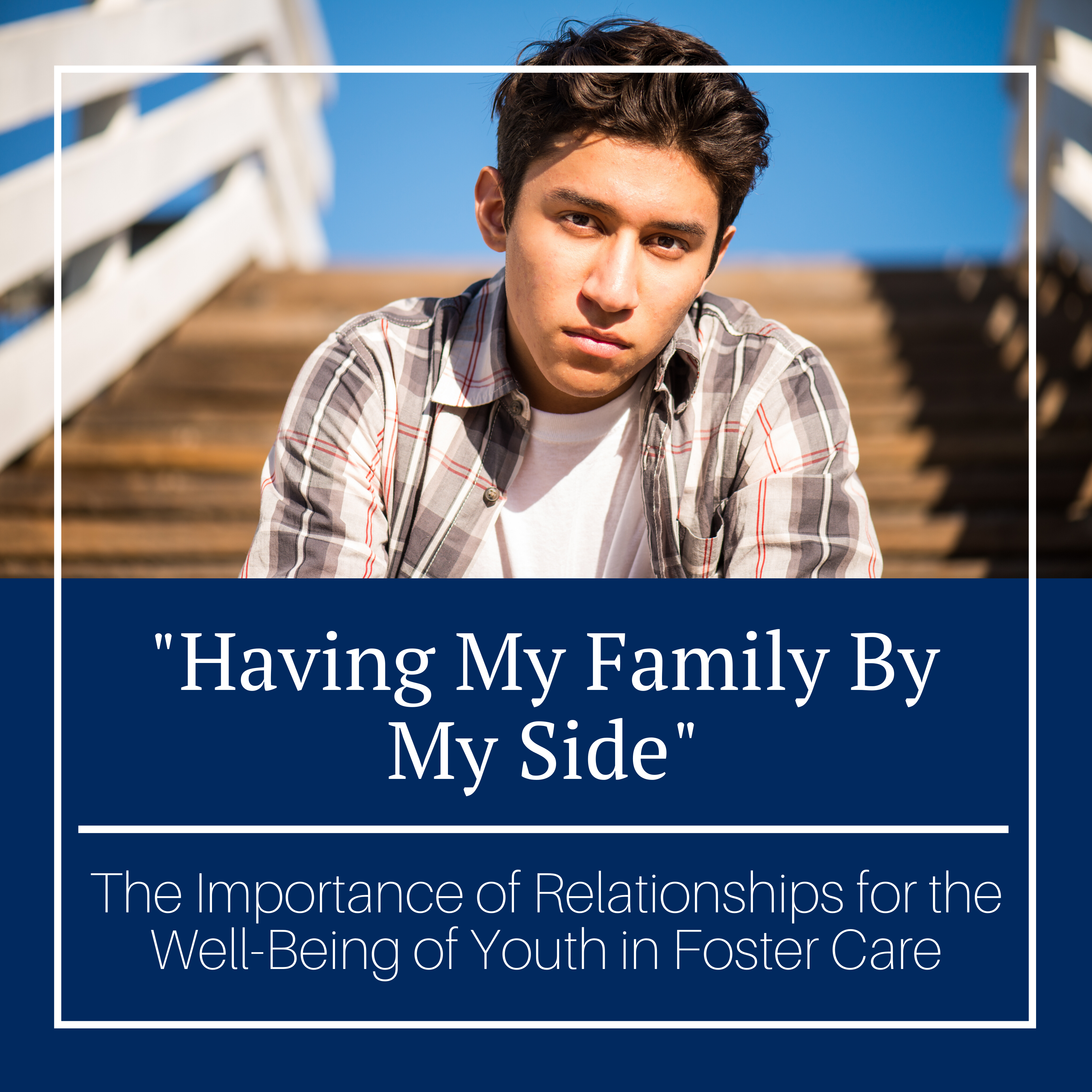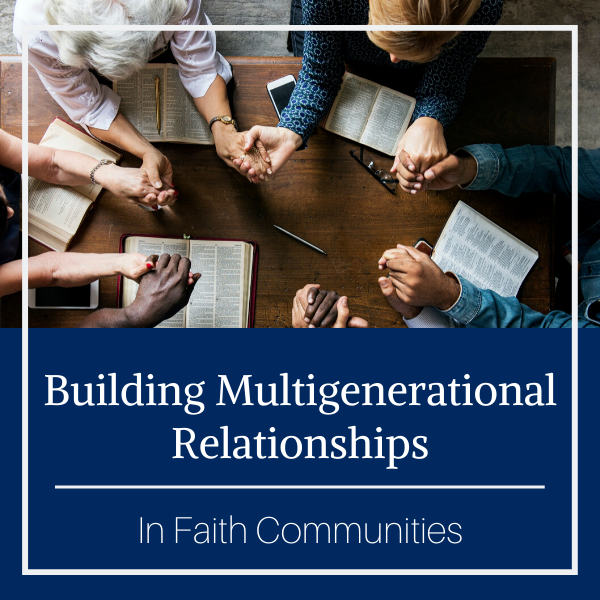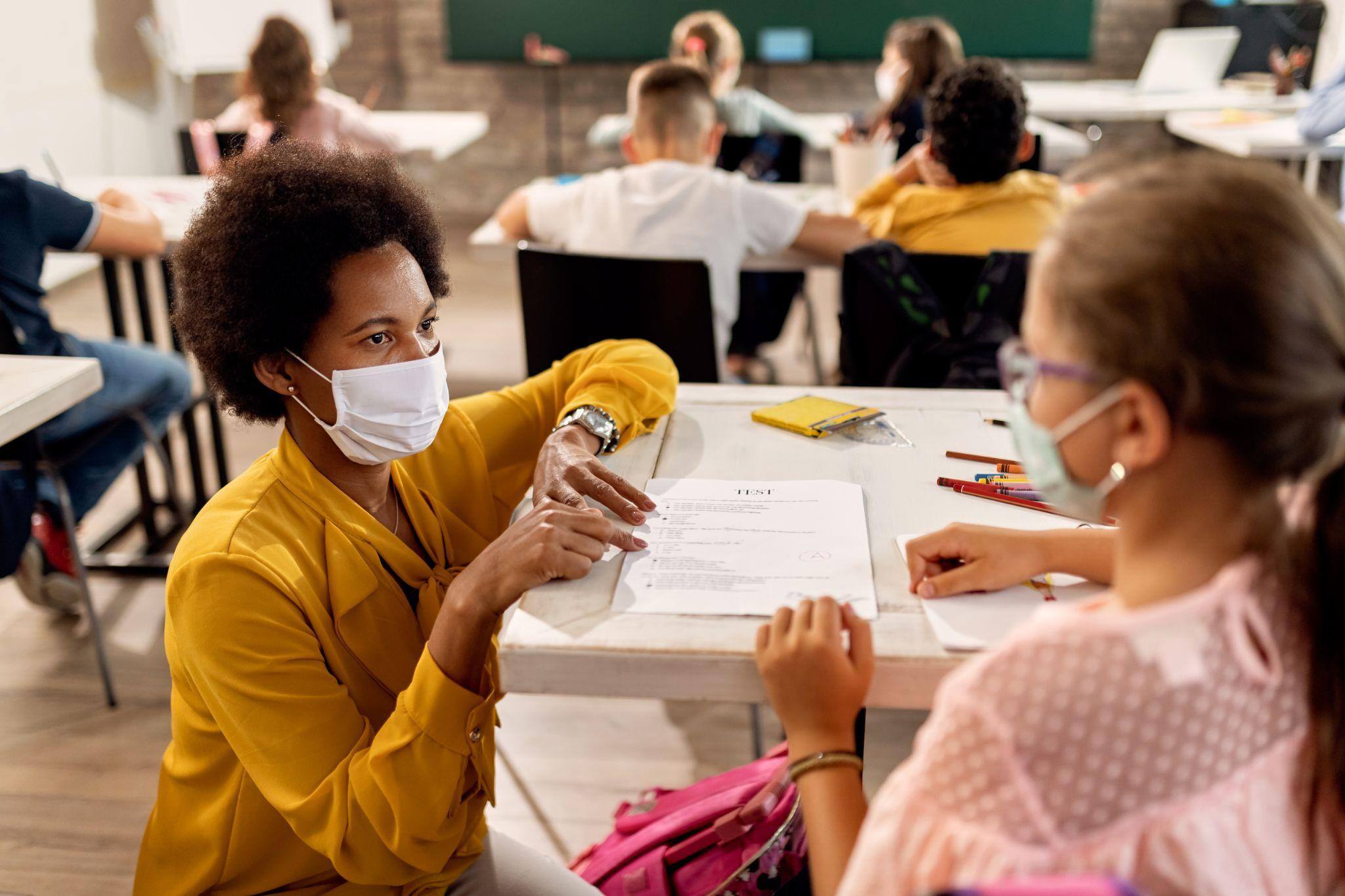Blog
“Having My Family By My Side”: The Importance of Relationships for the Well-Being of Youth in Foster Care

“Having My Family By My Side”: The Importance of Relationships for the Well-Being of Youth in Foster Care
By Rachel Chamberlain, Search Institute Research Associate
What needs to happen in your life for you to feel that it is going well? In this time of social isolation, sickness, and job loss due to COVID-19, our minds might jump to our basic needs. We might also feel pain from a loss of in-person interactions, perhaps a hug from a loved one or the unique connections that only happen when face-to-face. Relationships with other people are crucial for our well-being.
For young people who are impacted by the child welfare system, isolation in a pandemic can be devastating. Family visits, court dates, and other opportunities for connection are being postponed, adding uncertainty to an already traumatic situation for separated families. It is a critical time to revisit young people’s perspectives on relationships in foster care, what they say is needed for well-being, and how their perspectives illuminate priorities in policy and practice.
Well-being is grounded in relationships
A recent Search Institute study, supported by the Sauer Family Foundation, examined the experiences of those impacted by the child welfare system in Minnesota. These young people were asked to share what happens when their lives are going well. Participants ranged in age from 17-19 and were primarily from groups who are marginalized, including those from African American, indigenous, and LGBTQ populations. They described structural, cultural, and social supports they needed for them to experience well-being. When these supports are available, they said, it was easier to achieve good health, positive emotions such as hope and peace, and a sense of agency and control.
As shown in the diagram below, structural supports are systems or structures that provide basic needs: employment, housing, or transportation. Social and cultural supports are grounded in relationships. They include networks of family, friends, and other people to support cultural practices and help young people access what they need. Several young people also discussed how it is important for family to be together, get along, and thrive. One young person described this as “having my family by my side.” Other young people said that their family is their “support system,” or their “family just wants what’s best for me.”
Yet, when young people enter the child welfare system, they are removed from family. They also do not know when they will be reunited. This removal, combined with a sense of powerlessness, causes young people to despair or feel stuck. These experiences are heightened by systems that disenfranchise people of color or other marginalized groups. It reinforces a cycle of chronic stress and a struggle to meet basic needs that inevitably puts strain on the relationships that are crucial to help young people thrive.
From powerlessness to powerful relationships
It should not come as a surprise that relationships are considered important to young people in foster care. Indeed, relationships are the roots of success and essential for all young people. Relationships with parenting adults, in particular, are foundational for healthy development. But since young people feel powerless in foster care, it is crucial to listen when they say relationships are important. We know that young people are rarely asked about their well-being or experiences in the child welfare system. They may even be discouraged from sharing their thoughts. As one young person in our study said, they are: “being told to stay in ‘child’s place.’”
A child’s place—and their family’s place—is not in silence, but where policy is formed and decisions about their well-being are made, particularly when those young people and those families have been at the margins of power for generations. It is a paradigm shift to a model where families in foster care are given agency and support to thrive.
Young people in our study were clear that relationships are essential, but they do not happen in a vacuum. Families must have access to basic needs, fair and respectful systems, and cultural supports. The lack of access to these resources highlights a gap in state and federal policies, programs, and communities that may not fully support families before separation and the painful loss of key relationships. If separation is necessary for the short or long term, how might young people receive the support they need? And, how would they be partners in a process that helps them experience strong, positive relationships in all aspects of their lives?
What works to support youth in foster care
Through our study, young people articulated what can happen when the child welfare system works to support families and strengthen relationships. Individual connections with a social worker or foster parent can make a difference when these relationships are respectful, trusting of young people, and allow them to continue engaging in cultural and religious practices and interaction with loved ones. Relationships can provide a bridge to opportunities that allow young people to complete their goals while also maintaining or repairing connections with others.
Child welfare families and systems across the nation are in the process of navigating the reality of what this might look like in the midst of a pandemic. Relationships remain a key component of how young people experience well-being. Opportunities for these connections may be more difficult now—and thus more critical —and they will remain foundational into the future.
Young people, including those in the child welfare system, are our greatest asset in understanding what it takes to build relationships in the midst of a crisis. What remains is for us first to really listen to them. Then we must act when we ask a simple but challenging question: What needs to happen in your life for you to feel that it is going well?




